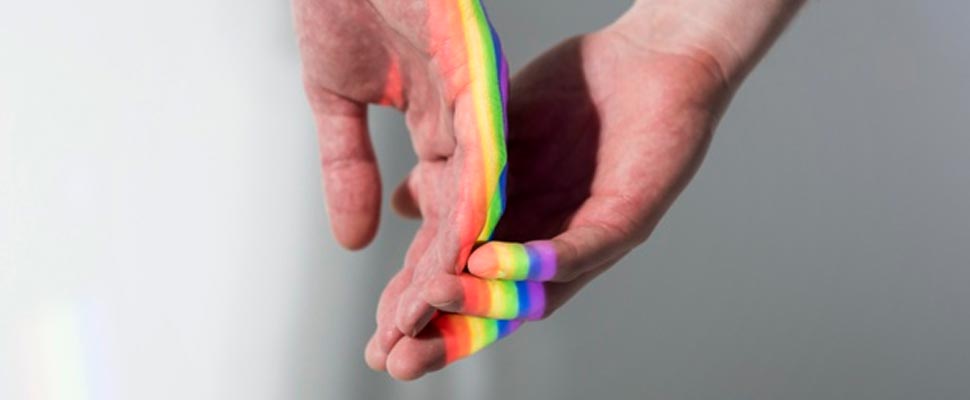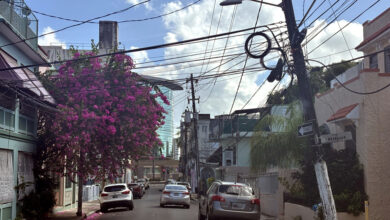Interview: How can I support my relative who came out?
We Talked With Miguel Rueda, Director And Founder of Pink Consultores, A Consulting Firm That Bets on Love.

We tell you about the importance of family support when it comes to “coming out,” acceptance, what has been achieved in the LGBTIQ + community, and the road ahead. Photo: Freepik
LatinAmerican Post | Vanesa López Romero
Listen to this article
Leer en español: Entrevista: ¿Cómo puedo apoyar a mi familiar que salió del clóset?
9 years ago, on June 28, coincidentally, Pink Consultores was born, a psychosocial care consulting firm that works on the inclusion of diversity. By then, in Colombia there were no specialized services for LGBTIQ + people and their families, so Pink emerged as a response to this need. Since then, they have worked in several fields; governmental, organizational, and educational, where they promote inclusion and fight exclusion.
Also read: Interview: "The LGBTI Struggle in Latin America Is Just Beginning", Mauricio Toro
We talked with Miguel Rueda, director and founder of Pink, about the importance of family support when it comes to "coming out", acceptance, what has been achieved in the LGBTIQ + community, and the way forward.
LatinAmerican Post: We know that there has been progress in the acceptance and support of the LGBTIQ + community. But in the middle of 2021, there are still stereotypes and fears. What do you think this is due to?
Miguel Rueda: Homophobia continues to exist and by continuing to exist it produces discomfort at the individual and collective level. LGBTIQ + people are still killed in the street for being who they are. They keep kicking them out of schools, out of jobs. They keep denying them rights. Until homophobia goes away, this is not going to change. I recognize that there are advances. Colombia at the regional level is a pioneer country in policies on inclusion and affirmation of sexual and gender diversity, on paper. Being gay or lesbian in Bogotá is very easy, but if you go to Quibdó, Tumaco, Leticia, Yopal, Vaupés, Mitú or Riohacha things are completely different.
Even if we have equal rights that does not mean that the fight is over.
LP: Speaking of the family environment, what do you consider to be the correct way to approach a relative who is "coming out"?
MR: If a person is telling me that they are gay, lesbian, transsexual, or whatever they want to call themselves, it means that they have already made the decision to share it with me. Above all, you have to have a very open heart. You have to understand that they are sharing something fundamental about their life, something structural about their existence. The least I must do is accept them.
This is not to say that one should not be surprised or scared, or even angry, not because that is what should happen, but because it is what commonly happens. There are people who get surprised, who become angry or afraid, there are people who have completely negative responses to this situation. This happens because they allow themselves to be seized by a number of prejudices, preconceptions, myths, which put the person who is revealing their sexual orientation and/or gender identity at a disadvantage.
LP: Today we talk about inclusive language and we use it much more than a few years ago, how important do you consider that as family members we accept and use this language when a relative decides to reveal their sexual orientation or gender identity with us?
MP: Inclusive language is a validation of the other. Many are especially uncomfortable using it. But when I use inclusive language I am allowing the other person to recognize themselves as they are. Getting over my discomfort is much easier than generating a lot of discomfort to another human being.
Language is linked to culture. When one learns another language it is important to do a cultural immersion. If we understand why a person uses certain pronouns, it is essential to know a little about gender identity, about sexual diversity, about who are the other people with whom I am sharing my life.
LP: What do you think is the correct way to reveal my gender identity or sexual orientation to the family without feeling delegitimized?
MR: No anger, no fighting. This cannot be fought. When you are considering coming out, you should evaluate and prepare for other people's responses and reaction possibilities. You have to start with those closest to you.
LP: How can pedagogy of diverse identities and sexuality be done in a family environment?
MR: The subject must be discussed. If there is a diverse voice in the family, that person should be the leading voice in these conversations. You have to understand that this issue is not about fighting, it is about talking. Understanding takes time, there are many identities and orientations. If there is a problem finding the appropriate way to address this issue, we have professionals to provide accompaniment. There are ways to educate and talk about the issue without fighting.
LP: Finally, how do you think we can feel proud?
MR: Recognizing history on a global, regional and local level, which today allows us to go out and hold hands quietly on the street. What we call pride must be an engine to keep walking. Walking means living. This should be a way to say "here we are, here we live, this is us". Create a path so that the people who come behind feel calm, so that they look for us who have been walking with pride until now.
###
Miguel Rueda is a Doctor of Psychology from the Universidad de los Andes, Bogotá, Colombia. He is a Magister in psychology from the Universidad de los Andes and a specialist in psychotherapy and counseling from the School of Psychotherapy and Counseling, Regent's College, London, England and in Sexuality, Culture and Society from the University of Amsterdam, Holland. He is also a university professor at the University of Los Andes, Bogotá, Colombia. He has a certificate in Psychotherapy with Sexual and Gender Diversities at the Pink Therapy Institute, in London, England. He is also the director and founder of Pink Consultores.




